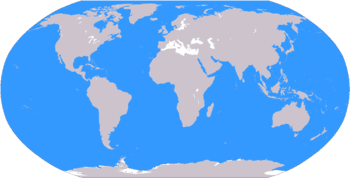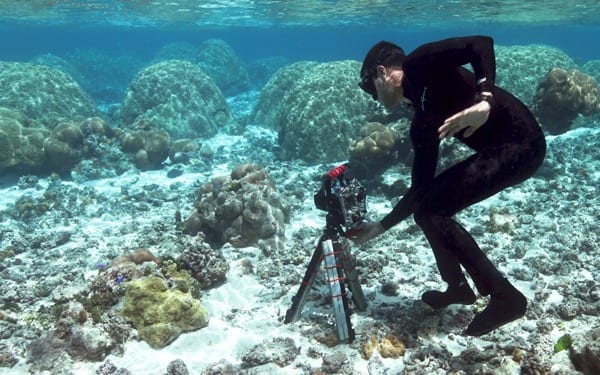
New management is needed for the planet’s most important common resource
IN 1968 an American ecologist, Garrett Hardin, published an article entitled “The Tragedy of the Commons”. He argued that when a resource is held jointly, it is in individuals’ self-interest to deplete it, so people will tend to undermine their collective long-term interest by over-exploiting rather than protecting that asset. Such a tragedy is now unfolding, causing serious damage to a resource that covers almost half the surface of the Earth.
The high seas—the bit of the oceans that lies beyond coastal states’ 200-mile exclusive economic zones—are a commons. Fishing there is open to all. Countries have declared minerals on the seabed “the common heritage of mankind”. The high seas are of great economic importance to everyone—fish is a more important source of protein than beef—and getting more so. The number of patents using DNA from sea-creatures is rocketing, and one study suggests that marine life is a hundred times more likely to contain material useful for anti-cancer drugs than is terrestrial life.
Yet the state of the high seas is deteriorating (see article). Arctic ice now melts away in summer. Dead zones are spreading. Two-thirds of the fish stocks in the high seas are over-exploited, even more than in the parts of the oceans under national control. And strange things are happening at a microbiological level. The oceans produce half the planet’s supply of oxygen, mostly thanks to chlorophyll in aquatic algae. Concentrations of that chlorophyll are falling. That does not mean life will suffocate. But it could further damage the climate, since less oxygen means more carbon dioxide.
For tragedies of the commons to be averted, rules and institutions are needed to balance the short-term interests of individuals against the long-term interests of all users. That is why the dysfunctional policies and institutions governing the high seas need radical reform.
Net loss
The first target should be fishing subsidies. Fishermen, who often occupy an important place in a country’s self-image, have succeeded in persuading governments to spend other people’s money subsidising an industry that loses billions and does huge environmental damage. Rich nations hand the people who are depleting the high seas $35 billion a year in cheap fuel, insurance and so on. The sum is over a third of the value of the catch. That should stop.
Second, there should be a global register of fishing vessels. These have long been exempt from an international scheme that requires passenger and cargo ships to carry a unique ID number. Last December maritime nations lifted the exemption—a good first step. But it is still up to individual countries to require fishing boats flying their flag to sign up to the ID scheme. Governments should make it mandatory, creating a global record of vessels to help crack down on illegal high-seas fishing. Somalis are not the only pirates out there.
The Latest on: Tragedy of the high seas
[google_news title=”” keyword=”Tragedy of the high seas” num_posts=”10″ blurb_length=”0″ show_thumb=”left”]
via Google News
The Latest on: Tragedy of the high seas
- ‘Halloween On the High Seas’ Will Return To Disney Cruise Lineon May 7, 2024 at 7:27 am
Disney Cruise Line announced that it will be offering another year of themed “Halloween on the High Seas” cruises throughout fall 2024.
- National Maritime Day Observance to Include Prayers for Victims of Baltimore Bridge Collapseon May 6, 2024 at 3:00 pm
On May 22, National Maritime Day will be observed, honoring the significant contributions and sacrifices of individuals working on the high seas. This year, the Catholic Church’s ...
- Tragic Death on the High Seas: Man Overboard from "Pacific Adventure"on May 6, 2024 at 4:05 am
A man tragically lost his life after falling overboard from the cruise ship "P&O's Pacific Adventure" off the coast of Sydney.
- Special remembrance of Baltimore bridge collapse victims to take place on National Maritime Dayon May 5, 2024 at 11:00 am
Bishop Brendan Cahill is inviting Catholics throughout the United States to join the “National Day of Prayer and Remembrance for Sailors and People of the Sea.” ...
- Wreath-laying remembers double fishing boat tragedyon May 5, 2024 at 5:11 am
A wreath has been laid at sea in remembrance of a double fishing vessel tragedy off the East Yorkshire coast 40 years ago. Seven men died after the Carole Sandra and North Wind III were caught in high ...
- Enchanter fishing boat tragedy trial: Everything you need to know ahead of the upcoming trialon May 4, 2024 at 11:08 pm
It was meant to be the ultimate adventure, instead five friends died after a rogue 10m wave capsized the boat. Now, the trial against the skipper and owner begins.
- Aviation Deaths on the High Seas: Continuing Questions and Recent Developmentson April 9, 2024 at 3:07 am
Aviation crashes that occur on the high seas are subject to unique aspects ... Congress amended DOHSA in 2000 as the result of another devastating tragedy: the crash of TWA Flight 800 on July ...
- Tragedy on high seas: Indian Coast Guard rescues 8 fishermen; one dead, one missingon April 4, 2024 at 9:54 pm
CHENNAI: One fisherman died and another went missing after a boat with 10-member crew started sinking as seawater seeped into it through a hole. The vessel was involved in fishing in deep sea 95 ...
- Michael A. MacDowell: It’s time to ratify the High Seas Treatyon March 29, 2024 at 5:00 pm
This agreement, commonly called The High Seas Treaty, is designed to protect ... designed to address what economists refer to as “the tragedy of the commons.” This concept is best illustrated ...
- Rising Season February 17, 2021 at 3:54 pm
In the short term scientists are still uncertain about how fast and how high seas will rise. Estimates have repeatedly been too conservative. Global warming affects sea level in two ways.
via Bing News










